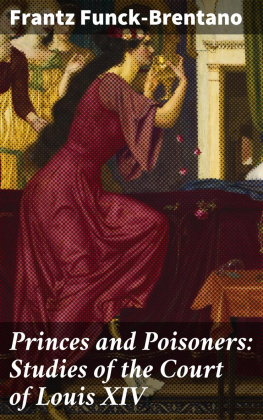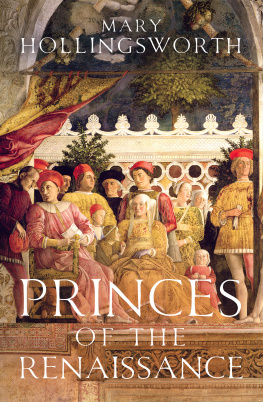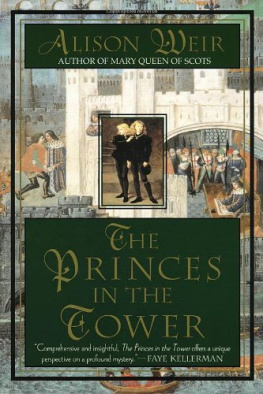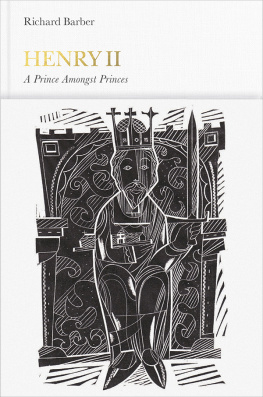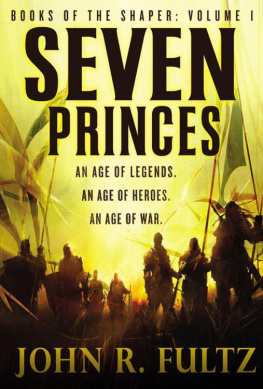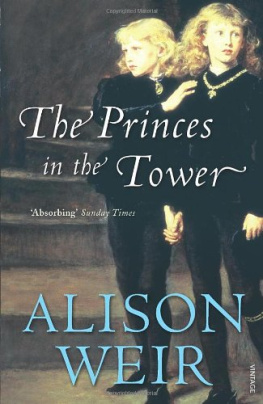John Fultz - Seven Princes
Here you can read online John Fultz - Seven Princes full text of the book (entire story) in english for free. Download pdf and epub, get meaning, cover and reviews about this ebook. genre: Romance novel. Description of the work, (preface) as well as reviews are available. Best literature library LitArk.com created for fans of good reading and offers a wide selection of genres:
Romance novel
Science fiction
Adventure
Detective
Science
History
Home and family
Prose
Art
Politics
Computer
Non-fiction
Religion
Business
Children
Humor
Choose a favorite category and find really read worthwhile books. Enjoy immersion in the world of imagination, feel the emotions of the characters or learn something new for yourself, make an fascinating discovery.

- Book:Seven Princes
- Author:
- Genre:
- Rating:5 / 5
- Favourites:Add to favourites
- Your mark:
- 100
- 1
- 2
- 3
- 4
- 5
Seven Princes: summary, description and annotation
We offer to read an annotation, description, summary or preface (depends on what the author of the book "Seven Princes" wrote himself). If you haven't found the necessary information about the book — write in the comments, we will try to find it.
Seven Princes — read online for free the complete book (whole text) full work
Below is the text of the book, divided by pages. System saving the place of the last page read, allows you to conveniently read the book "Seven Princes" online for free, without having to search again every time where you left off. Put a bookmark, and you can go to the page where you finished reading at any time.
Font size:
Interval:
Bookmark:
John R. Fultz
Seven Princes
Prologue
The stranger came to Yaskatha at sunset.
The city had taken on the color of blood, a mound of rubies stacked beside the blue-green mirror of the sea. Shadows glided through streets and gardens. In the royal orchards weary harvesters carried bushels of lemons and pomegranates. Along the wharves a flock of trading vessels folded their sails for the night. Mariners prowled the taverns in search of red wine and the red lips of women.
In the airy palace of King Trimesqua the Feast of Ascension began with a legion of musicians, a flourish of dancers, and a quartet of fire-eaters. Before the throne sat a long table piled high with delicacies. Prince Dzan sat at the head of the board, looking far more regal than his sixteen years would suggest. Behind him, as always, stood Olthacus the Stone. The solemn warrior wore a massive blade on his back. It had served him well in three wars, but he seldom drew the sword from its jeweled sheath. A glance of the Stones gray eyes sent fear fluttering into the hearts of brave warriors. To Dzan, laughing at the antics of a fool who juggled flaming brands, his fearsome bodyguard was little more than a stiff-lipped uncle. Yet no man could have been safer at court than the young Prince. Not even the King himself.
In the midst of the revels, as the sun poured the last of its lifeblood into the sea, a stranger appeared before the throne of Trimesqua. No one saw him enter the palace gates or move between the ranks of armored guards. He flowed like a shadow across the motley crowd and stood before the King. When first he spoke, the music overpowered unghis words so that only the King could hear him.
Trimesqua set down his golden goblet, raised a hand heavy with rings, and commanded silence. All eyes fell upon the stranger. He was a tall man, gaunt, and as pale as the jungle dwellers of Khyrei. His hair fell long and gray down his back, and his robes were black as pitch. An arc of rubies hung across his chest like drops of frozen blood, mimicking the cold moon with a red smile. The nails of his fingers were long and sharp, making claws of his hands. Shadows rimmed his eyes.
Who is this mad vagabond? Trimesqua asked a nearby courtier.
I am Elhathym, said the stranger. His voice was deep and cold. I knew this city when it was called by another name but I have lingered a great while in distant lands. Tonight is my homecoming.
Say again, Elhathym, what you said to me when first you caught my eye, said the King. If you dare.
Elhathym nodded. I said that your reign has come to an end, Trimesqua. He glanced about the crowded hall. Step down from your marble seat. This city belongs to me.
A flood of gasps and muttered curses filled the hall. Prince Dzan stood up from his feasting chair and stared at the stranger. His guardian, the Stone, did not move or even blink an eye. A moment of silence fell across the assemblage.
The exquisite tension was broken by the Kings laughter, which spread like bubbling water throughout the courtesans, nobles, entertainers, and servants. The stranger stood mute and grinning as the laughter surrounded him. Guards along the walls drew their curved blades and moved closer to the throne, but the King raised his glittering hand again, halting them.
Surely you are one of the fools sent to amuse me? said the King, regaining his composure. He quaffed red wine and chuckled again. A rare jest!
I assure you, said Elhathym, I am no fool, and this is no jest. This land is mine by ancient right. I could bring your city to its knees with sorcery and shed the blood of all these beautiful soldiers, but I am not a cruel man. Therefore I give you this chance to surrender the throne without any deaths on your conscience but your own. I will make your execution quick. You will feel no pain. Deny me and all will suffer.
Now the King did not laugh. Nor did anyone in the hall. A deathly silence hung between the pillars with the smoke of feasting, broken only by the crackling of torch flames. Dzan drew the long dagger that he always wore and moved toward his father, but his silent bodyguard placed a hand on his shoulder. Despite the nervous twitching in his stomach, the Prince stilled himself.
The King stood up and tossed his wine cup down the steps of the dais, turning white marble to crimson. Guards rushed forward, but a third time Trimesqua raised his hand, and they halted. My father, and his father, and all their fathers before them ruled Yaskatha from this high seat, said Trimesqua. Neither men, wizards, demons, or tidal waves shook them from this throne. Here is what I think of your threat, Elhathym the Sorcerer.
In the blink of an eye Trimesqua, who was seasoneo was sed in the same wars as Olthacus the Stone, drew his silver sword and swept it down upon the strangers head. Elhathyms skull split with a meaty crack that rang the length of the hall. He fell backward in a shower of gore, staining the fine carpet at the Kings feet.
Remove this trash! commanded the King. He tossed his soiled blade to lie upon the chest of the dead man. Guards rushed forward and dragged the body away; one of them would clean and anoint the sword before returning it to him. Servants exchanged the ruined carpet for fresh one, and the Festival of Ascension resumed. Music and wine flowed through the heart of the palace like blood through a living mans body, and the corpse of Elhathym was thrown into a deep furnace. Later, his charred bones were tossed into the midnight sea.
That night Prince Dzan fell asleep after exhausting his passion with a comely courtesan. Instead of the sweet oblivion born of drink and exertion, his rest was plagued by nightmares. He found himself wandering through the ancestral burial vaults deep below the palace, where lay the bones of his grandfather, his great-grandfather, and all the generations of his family going back a thousand years. He was cold and without garments as he wandered those lightless, musty catacombs, and the eye sockets of decaying skulls glared at him from the shadows.
Somewhere among the vaults he knew his mother lay, for she had died when he was an infant, and he did not remember her face. Still, she must be here in this realm of chill darkness and creeping grave mold. Royal families throughout the centuries filled the numberless rows of niches, and sometimes favored servants and war heroes earned the honor of burial in the royal crypts. In terror, Dzan wandered this mansion of the dead, calling the name of his father into the dark. Only echoes answered him.
He called, too, the name of Olthacus, his bodyguard. Not even the Stone came to help him navigate those dark depths, and he could not find his way out. He found only chamber after chamber of mummified ancestors, the population of the citys long history, and the crumbling, engraved sarcophagi in which they lay. Here was a city of death that slept beneath the living city, and at last he gave up looking for the exit and lay down in the dust near a pile of bones. It seemed to him then that he heard a faint laughter ringing through the tombs.
He woke to a sweltering bedchamber, lying next to the senseless girl who shared his bed. He could not sleep again so he walked along the open balcony of his room and let the ocean breezes dry his sweat. The girl joined him on the balcony and soon lured him back to bed.
The following day was like any other in Yaskathas thriving capital. Dzan arose early and walked the palace garden with his fair-haired cousin Lysinda. He spoke to her of his nightmares and she comforted him like a mother with gentle kisses on his forehead and cheek.
Ive dreamed of my mother before, Dzan told his cousin. But never of the place where she lies.
There is nothing to fear, said Lysinda, taking one of his hands in her own. Dreams are only passing fancies. They cannot hurt us.
Font size:
Interval:
Bookmark:
Similar books «Seven Princes»
Look at similar books to Seven Princes. We have selected literature similar in name and meaning in the hope of providing readers with more options to find new, interesting, not yet read works.
Discussion, reviews of the book Seven Princes and just readers' own opinions. Leave your comments, write what you think about the work, its meaning or the main characters. Specify what exactly you liked and what you didn't like, and why you think so.

